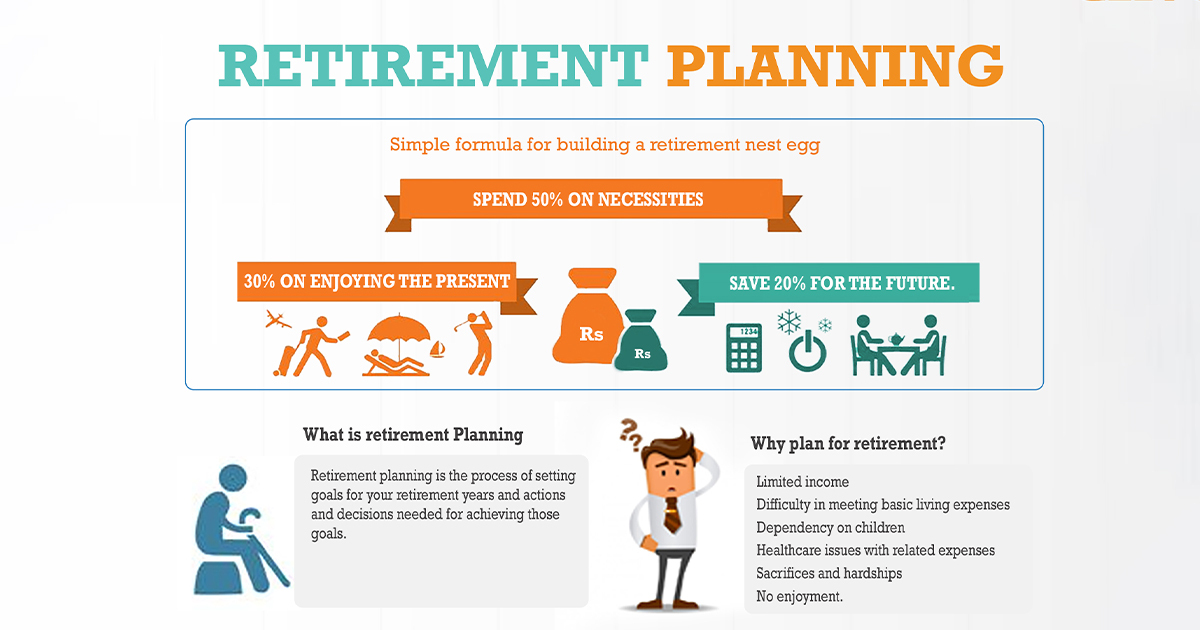Real Estate Investment Strategies for Retirement Planning
In an ever-evolving financial landscape, planning for retirement has become increasingly complex and critical. As traditional retirement options like pensions become scarcer, individuals are exploring alternative means to secure their financial future. Real estate investment, once primarily associated with generating rental income, has emerged as a compelling strategy for retirement planning. This blog delves into the various facets of real estate investment strategies and how they can be harnessed to build a robust retirement portfolio.
The Evolution of Retirement Planning
Retirement planning has witnessed a significant shift over the years. The onus of funding one’s retirement has transitioned from employers to individuals, making it essential to explore diverse investment avenues. Real estate, with its potential for long-term growth and income generation, has captured the attention of savvy investors looking to secure their financial future.
Primary Residence vs. Investment Properties
One of the initial considerations in real estate retirement planning is distinguishing between your primary residence and investment properties. While your primary residence is undoubtedly an asset, it’s often the additional investment properties that can significantly contribute to your retirement nest egg. Rental income from these properties can serve as a reliable source of retirement income.
Generating Retirement Income through Real Estate
Rental income is a key component of real estate retirement planning. Owning and renting out residential or commercial properties can provide a steady stream of income, even after you retire. Careful property selection, prudent property management, and understanding your target rental market are crucial to maximizing this income stream.
Building Wealth for Retirement with Real Estate
Real estate investments can yield wealth through property appreciation. Over time, real estate tends to increase in value, and this appreciation can significantly boost your net worth. Investing in properties located in areas with strong economic fundamentals and growth potential can be a smart strategy.
The Real Estate Retirement Portfolio
Diversification is a fundamental principle of investment, and real estate is no exception. Building a real estate retirement portfolio involves spreading your investments across different types of properties, such as residential, commercial, and industrial. Each property type offers distinct advantages and risk profiles, contributing to a well-rounded portfolio.
Real Estate for Long-Term Financial Security
Real estate’s potential for long-term financial security lies in its resilience and adaptability. Even during economic downturns, real estate often retains its value and can continue to generate income. This stability can provide peace of mind during retirement.
Investing in Rental Properties for Retirement
Rental properties are a popular choice among retirees seeking a consistent income stream. The key is to invest in properties that align with your financial goals and risk tolerance. Single-family homes, multi-unit apartments, or commercial spaces each offer unique advantages for rental income generation.
Real Estate as a Retirement Asset
Including real estate in your retirement planning diversifies your asset base. Unlike traditional investments like stocks and bonds, real estate is a tangible asset that can provide a sense of security. Additionally, it can act as a hedge against inflation, helping to preserve your purchasing power in retirement.
Retirement Planning with Real Estate Investments
Successful retirement planning involves setting clear goals and strategies. When incorporating real estate into your retirement plan, consider factors such as your investment timeline, risk tolerance, and desired income level during retirement. Developing a well-thought-out strategy tailored to your unique circumstances is essential.
Real Estate Diversification for Retirement
Diversifying your real estate holdings can mitigate risks associated with economic downturns or market fluctuations. Consider mixing residential, commercial, and industrial properties, or explore real estate investment trusts (REITs) and real estate crowdfunding platforms to broaden your portfolio.
Real Estate ROI in Retirement Planning
Understanding the return on investment (ROI) is crucial in evaluating potential real estate properties for retirement planning. Factors such as property appreciation, rental income, property management costs, and financing terms all play a role in determining the ROI of your real estate investments.
Buy and Hold Real Estate for Retirement
The buy-and-hold strategy involves acquiring properties to hold them for an extended period, typically until retirement. This approach allows for property appreciation and the gradual reduction of mortgage debt, resulting in a more significant asset when you retire.
Real Estate Cash Flow for Retirees
Cash flow from rental properties can be a lifeline for retirees. Properly managed properties should ideally provide consistent monthly income, helping to cover living expenses and enhance your quality of life during retirement.
Rental Income in Retirement Strategy
Renting out a portion of your primary residence or downsizing to a smaller property and renting out the larger one can be a strategic move for retirement income. These arrangements can supplement your retirement funds and provide flexibility.
Real Estate Equity in Retirement Planning
The equity you’ve built in your real estate investments can be leveraged in retirement. Options such as refinancing or selling a property to unlock equity can provide a financial cushion or fund other retirement pursuits.
Property Appreciation for Retirement Wealth
Property appreciation is a long-term wealth-building strategy. By investing in areas with growth potential and staying invested over the years, you can benefit from the appreciation of property values, significantly bolstering your retirement wealth.
Passive Income in Retirement from Real Estate
Passive income from real estate investments can offer financial peace during retirement. Whether through rental properties, REIT dividends, or real estate crowdfunding, passive income allows you to enjoy your retirement without the stress of active work.
Real Estate Investment Trusts (REITs) for Retirement
REITs are a convenient way to invest in real estate without direct property ownership. These publicly traded companies pool funds from investors to purchase and manage income-generating properties. Investing in REITs can provide diversification and liquidity in your retirement portfolio.
Real Estate Crowdfunding for Retirement
Real estate crowdfunding platforms enable investors to participate in property investments with relatively small amounts of capital. These platforms offer opportunities to diversify your real estate holdings while spreading risk.
Tax Benefits of Real Estate in Retirement Planning
Real estate investments offer several tax advantages, including deductions for mortgage interest, property taxes, and depreciation. Understanding these tax benefits can help optimize your retirement strategy.
Conclusion
Real estate investment strategies can play a pivotal role in retirement planning. Whether through rental income, property appreciation, or passive income sources like REITs, real estate offers a path to financial security and long-term wealth accumulation. Crafting a well-informed and tailored real estate retirement plan can pave the way for a comfortable and prosperous retirement journey.
FAQs
Q1. What are real estate investment strategies for retirement planning, and why are they important?
A1.Real estate investment strategies for retirement planning involve using properties to generate income and build wealth for a secure retirement. They are crucial because they offer diversification, potential for property appreciation, and a source of passive income in retirement.
Q2. Can I invest in real estate for retirement if I already own a primary residence?
A2.Yes, you can invest in real estate for retirement even if you already own a primary residence. Additional investment properties, such as rental properties or commercial real estate, can provide extra income and contribute to your retirement portfolio.
Q3. How can I generate retirement income through real estate investments?
A3.Generating retirement income through real estate involves owning and renting out properties. Rental income from tenants can serve as a consistent source of cash flow during retirement, helping cover living expenses and providing financial security.
Q4. What is the difference between property appreciation and rental income in retirement planning?
A4.Property appreciation refers to the increase in the value of real estate over time, which can significantly boost your net worth. Rental income, on the other hand, is the monthly income generated from renting out properties. Both can play key roles in retirement planning, with property appreciation building long-term wealth and rental income providing regular cash flow.
Q5. How can I diversify my real estate investments for retirement?
A5.Diversification in real estate can be achieved by investing in different types of properties, including residential, commercial, and industrial. Additionally, you can explore options like Real Estate Investment Trusts (REITs) and real estate crowdfunding platforms to broaden your portfolio and spread risk.
Q6. Are there tax benefits associated with real estate investments for retirement planning?
A6.Yes, there are tax benefits to real estate investments. These may include deductions for mortgage interest, property taxes, and depreciation. Understanding and leveraging these tax benefits can optimize your retirement strategy and reduce tax liabilities.
Q7. What should I consider when incorporating real estate into my retirement plan?
A7.When including real estate in your retirement plan, factors to consider include your investment timeline, risk tolerance, desired retirement income level, and property management. Developing a well-thought-out strategy that aligns with your unique circumstances is essential for a successful retirement plan.









